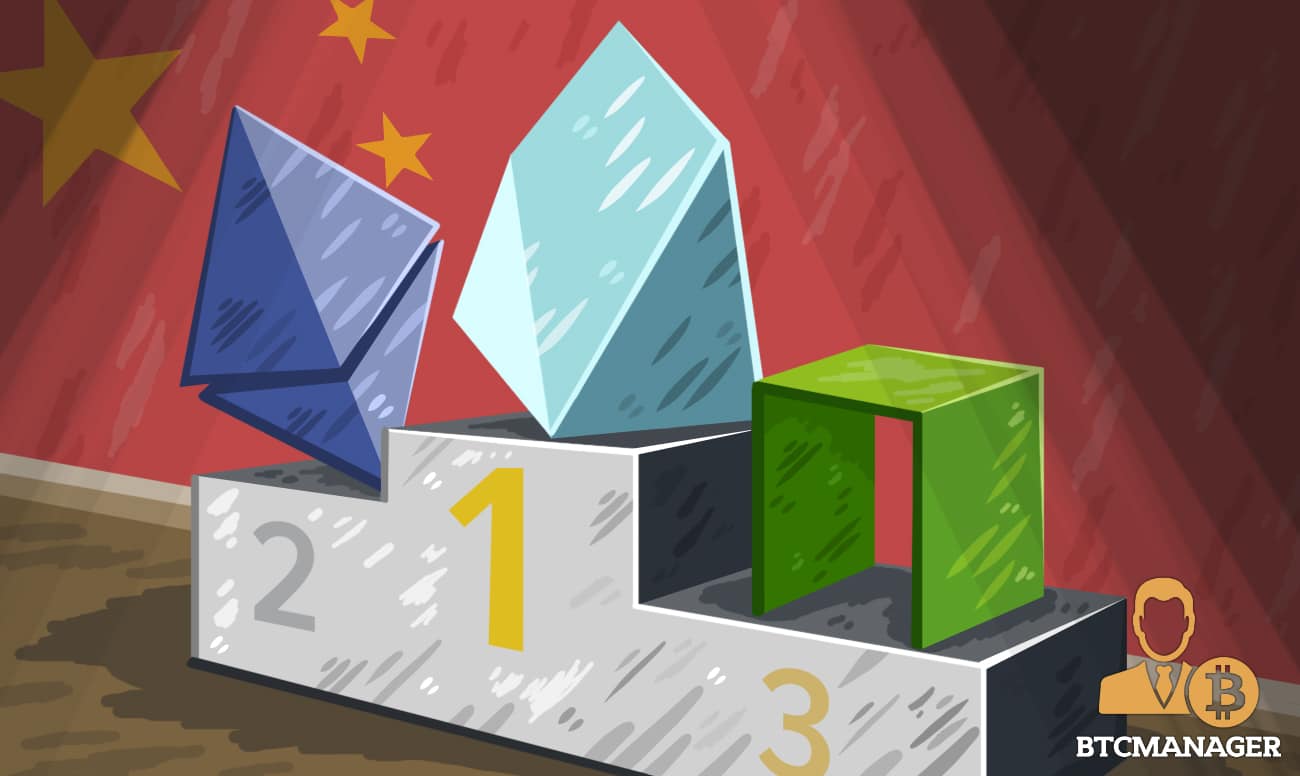China’s New Crypto Rankings: EOS First, Ethereum Second, Bitcoin 17th

The Chinese government has issued a revision of its cryptocurrency ranking, adding two new cryptocurrency projects. According to the revised ranking, EOS is now at the top of the list.
CCID’s Ranking System
China’s Center for Information Industry Development (CCID) published its second monthly Global Public Chain Technology Evaluation Index on June 20 at the Shanghai Science Hall, the Chinese media reported.
The first index, released in May 2018, included 28 projects. The newest ranking added EOS and Nebulas.
According to the CCID Network, the center’s media network under the Ministry of Industry and Information Technology, the CCID Public Chain Technology Assessment Working Group has introduced some changes to the ranking structure of the index:
“The second-phase assessment model has been optimized compared to the first phase. The security assessment algorithm has been improved, and the evaluation indicator for ease of deployment of public-chain nodes has been added.”
The basic model of technology assessment has not changed and the evaluation work is still carried out in three aspects: basic technology level, application level, and innovation capability.
EOS Ranks First, Bitcoin Drops to 17th
EOS ranked first, with the technology evaluation index score of 161.5. Ethereum, which in the previous period had taken the first place, is now the second, with a combined score of 138.4.
Bitcoin’s index is now only 91.5, putting the pioneer cryptocurrency to the 17th place.
According to CCID, EOS ranks first in terms of sub-indicators including basic technology and innovation capability.
The EOS main network went live on June 10. Although they have had problems, including network stability, they have been highly active in technological innovation, the CCID explains.
Another new addition to the ranking is Nebulas, a new generation public chain led by the Chinese technical team. Nebulas ranked sixth, with the index of 105.3.
Controversy Surrounding EOS
In June 2018, BTCManager reported a snapshot of EOS addresses revealed that only ten wallets (accounts) hold over 496,735,539 tokens or astonishing 49.67 percent of all one billion EOS tokens. Of these top ten so-called whales, the one with the lowest value held 20.6 million EOS of $280 million at that moment.
After these reports, the 21 EOS block producers decided to freeze seven EOS accounts suspected of theft, BTCManager reported.
The EOS911 initiative, a safety protocol determined by block producer EOS42, says that users can claim stolen funds on a case-by-case basis. While the idea is significant for the broader crypto sector, the decision to freeze these seven wallets is a fundamental violation of the rules stated by the EOS constitution, which explicitly stipulates such decisions require them to be adopted by “arbitration bodies”, with the block producers merely executing an arbitrary decision.
This is not the only problem with EOS. After they launched their main network on June 14, worrying statistics emerged concerning the EOS Block Producer elections.
One Redditor at the EOS Reddit Community noted Bitfinex received 50 percent of their votes from four whales. One voter even accounted for as many as 27 percent of votes for Bitfinex.
As BTCManager reported, EOS’s consensus methodology, while allowing the network participants to have their say in block producer elections, has nonetheless left it prone to whales significantly skew the results to certain block producers that have control over the network.














